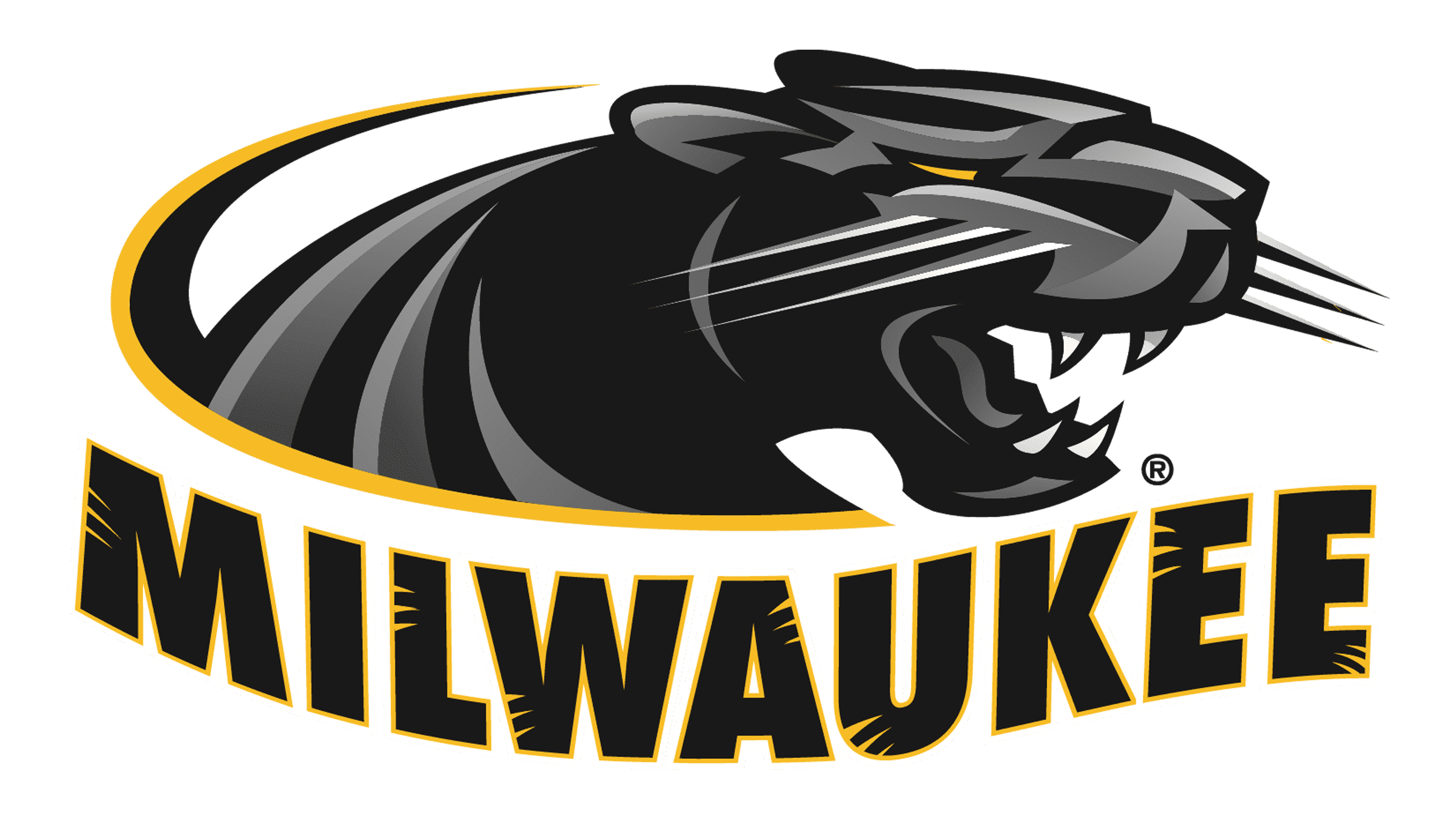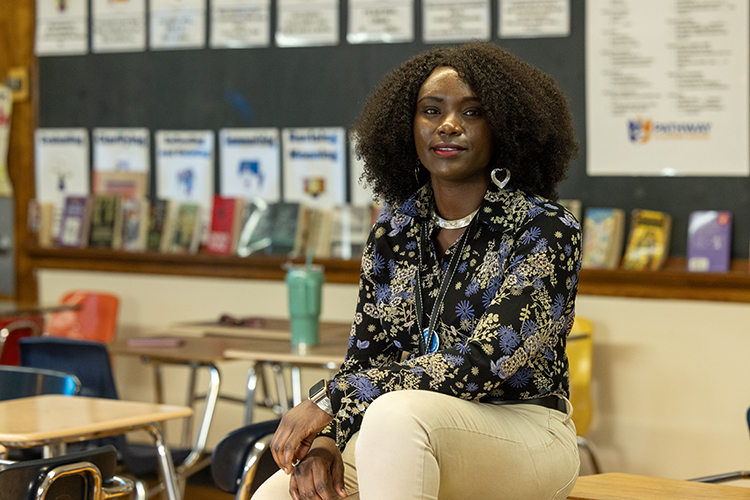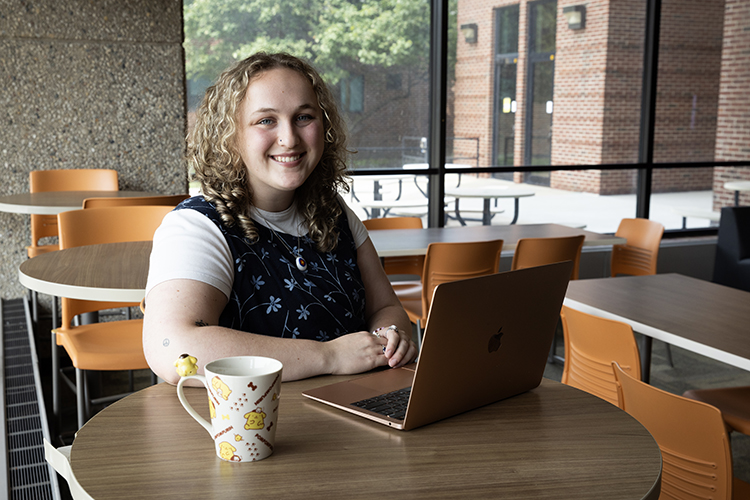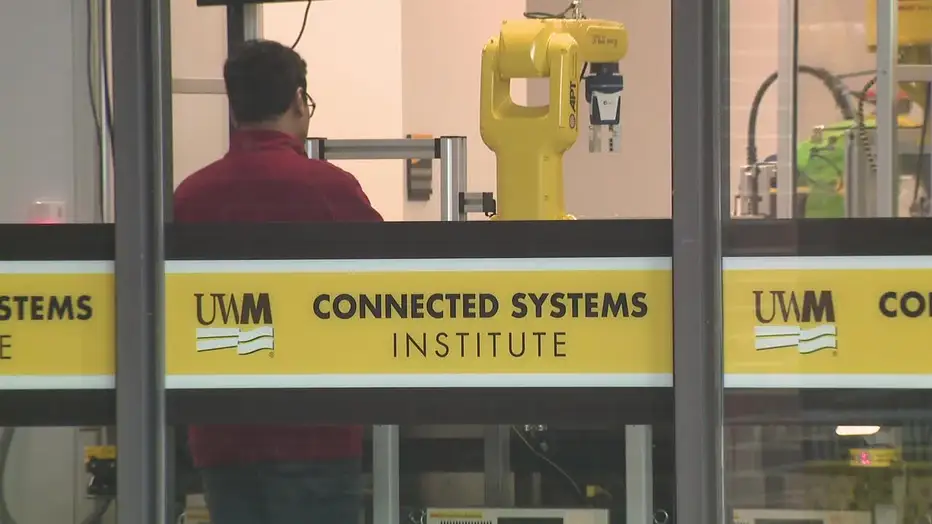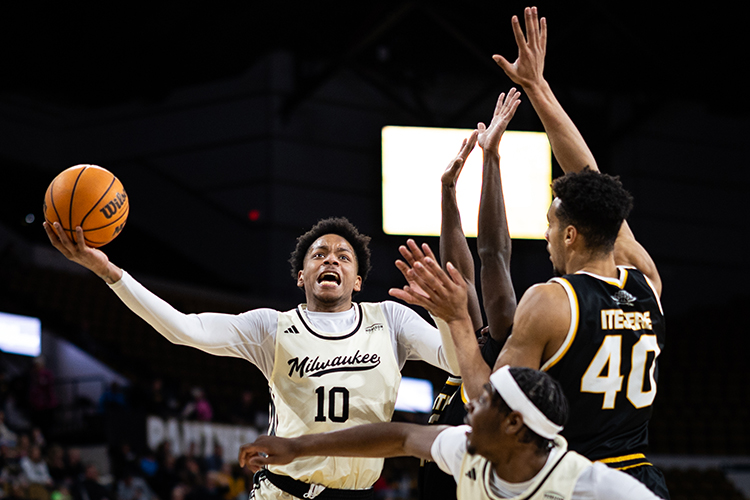If a student asks Pauline Kanyiva Mwendwa a question in Swahili, she’ll do her best to respond. The same goes for Spanish—she’s ready to help.
Mwendwa, a graduate student at UWM’s School of Education, teaches English-bilingual classes to juniors and seniors at Pulaski High School in Milwaukee.
“We have students from Asia, Latin America, and all over the world,” she said.
Originally from Kenya, Mwendwa has also taught in Mexico. She chose UWM to deepen her understanding of teaching in large urban schools. “I wanted to explore the challenges and figure out how to overcome them,” she explained.
Scholarships Make a Difference
Balancing full-time teaching and graduate studies hasn’t been easy, but scholarships have been essential. “They’ve helped me manage my finances so I can focus on teaching and school,” Mwendwa shared.
During the 2023-2024 school year, she was awarded the Roland Callaway Memorial Scholarship, the Day/Finch Scholarship, and the Milwaukee Educators Scholarship. This year, she’s receiving the Rolland Callaway Memorial Scholarship, the Amy Tessmer Boening Scholarship, and the Sydney G. Hambling Scholarship.
Inspired by Her Roots
Mwendwa’s journey into teaching was inspired by her parents and her teachers in Kenya. She later sought to challenge herself by teaching in a new country, choosing Mexico, where she learned Spanish in addition to the other languages she speaks—French, Swahili, and a community language from Kenya.
“At first, Google Translate was my best friend,” she said. But over time, she adapted to the language and culture.
Those experiences now resonate with her students at Pulaski, many of whom come from immigrant families. “I tell them, ‘I’m an immigrant too. I understand what you’re going through. It’s hard, but you can’t give up, even when it feels overwhelming.’”
Turning Challenges into Strengths
One major hurdle for her students is learning in English while managing the difficulties of life outside of school. “It’s hard for some of them to focus on schoolwork when they’re dealing with so much,” Mwendwa said.
Still, she motivates her students to view their bilingualism as a strength. “I tell them, ‘You have two languages in your head. That’s a superpower.’”
Her education at UWM has been instrumental in her success. “If it weren’t for UWM, I wouldn’t know how to tackle these challenges. The program has made me the teacher I am today.”
Growing as an Educator
Mwendwa’s mentors and advisors, including Tatiana Joseph, director of the English as a Second Language and World Languages programs, have guided her in choosing the right courses to fit her needs as a teacher.
Through UWM, she’s also attended conferences with bilingual educators. “Interacting with experienced educators has been incredible. They’ve shared their strategies for overcoming challenges, and I’ve learned so much from them.”
One of the biggest adjustments has been creating her own curriculum—something she didn’t have to do in Kenya or Mexico. “It was a challenge at first, but now I see it as an opportunity. Students learn in different ways, and I appreciate having the freedom to tailor my teaching to their needs.”
For Mwendwa, it’s all about supporting her students. “Just because they don’t speak English doesn’t mean they aren’t capable. I want to help them learn at their own pace and unlock their potential. As English learners, they have so much knowledge to share, and my goal is to help them succeed.”
